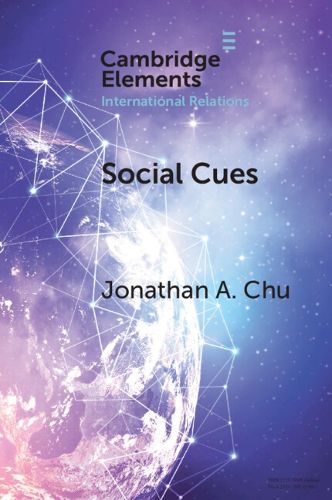Readings Newsletter
Become a Readings Member to make your shopping experience even easier.
Sign in or sign up for free!
You’re not far away from qualifying for FREE standard shipping within Australia
You’ve qualified for FREE standard shipping within Australia
The cart is loading…






This Element advances a theory of social cues to explain how international institutions legitimize foreign policy. It reframes legitimization as a type of identity politics. Institutions confer legitimacy by sending social cues that exert pressures to conform and alleviate social-relational concerns regarding norm abidance, group participation, and status and image. Applied to the domain of humanitarian wars, the argument implies that liberal democracies vis-a-vis NATO can influence citizens and policymakers within their community, the primary participants of these military operations. Case studies, news media, a survey of policymakers, and survey experiments conducted in multiple countries validate the social cue theory while refuting alternative arguments relating to legality, material burden sharing, Western regionalism, and rational information transmission. The Element provides an understanding of institutional legitimacy that challenges existing perspectives and contributes to debates about multilateralism, humanitarian intervention, and identity. This title is also available as Open Access on Cambridge Core.
$9.00 standard shipping within Australia
FREE standard shipping within Australia for orders over $100.00
Express & International shipping calculated at checkout
This Element advances a theory of social cues to explain how international institutions legitimize foreign policy. It reframes legitimization as a type of identity politics. Institutions confer legitimacy by sending social cues that exert pressures to conform and alleviate social-relational concerns regarding norm abidance, group participation, and status and image. Applied to the domain of humanitarian wars, the argument implies that liberal democracies vis-a-vis NATO can influence citizens and policymakers within their community, the primary participants of these military operations. Case studies, news media, a survey of policymakers, and survey experiments conducted in multiple countries validate the social cue theory while refuting alternative arguments relating to legality, material burden sharing, Western regionalism, and rational information transmission. The Element provides an understanding of institutional legitimacy that challenges existing perspectives and contributes to debates about multilateralism, humanitarian intervention, and identity. This title is also available as Open Access on Cambridge Core.